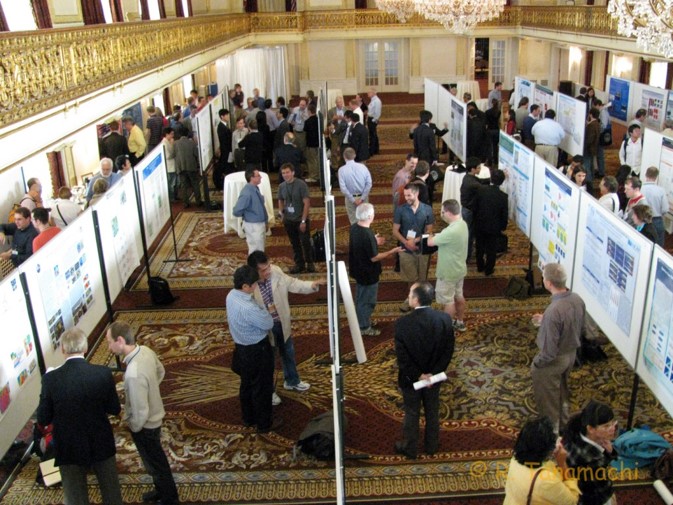Dr Jonathan Guy, Senior Lecturer
School of Natural and Environmental Sciences
Science, Agriculture and Engineering
What did you do?
Final year students organise a conference on current issues in animal science.
Who is involved?
Jonathan Guy, Facilitator, Andrew Beard, Facilitator, Helen Adamson, (expertise on poster design) Helen Atkinson, (Careers department) Eve Simcox, (Faculty Research Impact Officer), Stage 3 BSc Animal Science students (compulsory), Stage 3 BSc Agriculture students (optional).

How do you do it?
Two staff facilitators provide mentoring to the student team when solicited, as well as discretely ensuring fair play. Briefing sessions are also provided by staff from the University Careers Service, to highlight opportunities for students to develop specific employability skills in the module, and the Research Impact Office, to introduce the notion of research impact.
The students have to arrange themselves into an efficient organising committee, select the theme of the Conference, secure keynote speakers to complement their own student presentations and secure donations sufficient to cover the costs of the event. Students have full responsibility for running the Conference itself, everything from preparation of the venue and welcoming delegates to chairing sessions, delivering a number of theatre presentations (in groups) on topics relevant to the theme of the Conference and participating in the poster viewing and discussion session.
Much of the learning in this module is self-directed. In sub-groups, students undertake background research about their particular theatre topic before preparing an illustrated talk. During ‘dress rehearsals’, teaching staff offer constructive criticism about the scientific content and delivery of these talks. Alongside this, to give each student an understanding of the impact of a specific piece of research area in the field, students are tasked with creating an individual large-format impact poster. This allows students to further develop the skills required to generate and present a conference poster during the poster viewing and discussion session, a presentation format that students may encounter in academia and beyond.
Why do you do it?
In response to a curriculum review which suggested the need to provide further opportunities to develop employability skills and thus help to improve the career prospects of students.
Student Voice
“the sense of responsibility and feeling proud to be part of a team which worked well together”
“learning how scientists translate their papers into language that is comprehensible”
the opportunity “to deal with a variety of different people, from donors to guest speakers”“the challenge of presenting in front of a larger audience…increasing my confidence”
Feedback from conference organisers
Does it work?
Delegates, comprising invited guests from local FE colleges, current undergraduates and academic staff, attending the inaugural 2015 Animal Science Conference in Dec 2015 judged it to be a success. Delegates commended the standard of presentations, academic content and professionalism with which the event was organised, confirming that it was worthy of a 1st class mark.
When asked to reflect upon the ‘success’ of the module for developing them as individuals, students rated the module as being ‘above average’ for the acquisition of subject-specific knowledge as well as promoting key employability skills. In particular, students thought that the module developed their skills of teamworking, being innovative and taking initiative. Students in the organising committee considered that the module had given them the opportunity to develop new skills, and the freedom to make decisions.
One student commented that what she enjoyed most “was the sense of responsibility and feeling proud to be part of a team which worked well together”. Student scores for self-management, dealing with external professionals/general public and being innovative were particularly variable, highlighting that the development of certain skills depended upon the particular role that an individual had in the conference organising committee. Staff involved in the module confirm how suitable is this opportunity to develop the professional skills sought after by employers, whilst providing a medium for promoting the acquisition of academic skills such as inductive reasoning and critical thinking.
Contact Detail
Dr Jonathan Guy, Senior Lecturer
